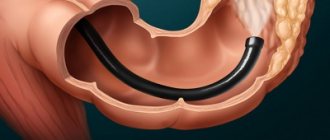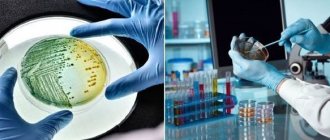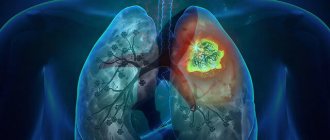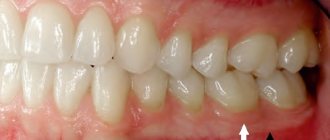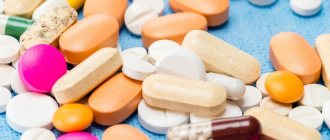Relatively recently, in medical circles there was a statement that the human body, emotions, mood, health and actions are ruled by... bacteria! Their habitat is the intestines. The public was instantly divided into 2 camps. Some argue that bacteria really have the ability to control us, and substantiate their opinion with facts, others recognize this as complete unscientific nonsense and, paradoxically, also give arguments. Let's try to figure it out and understand what microflora is, why it is needed, how bacteria control us, why they are called the second brain, and how to help bacteria make control effective.
What is intestinal microflora
Intestinal flora is what a person receives from the moment of birth and develops during the first 7-10 years. Over time, the set of microorganisms becomes more diverse and consists of lactobacilli, bifidobacteria, fungi and E. coli. They all live in friendly neighborhood not only with each other, but also with pathogenic microflora, preventing it from multiplying and causing harm to the body.
It is believed that pathogenic microflora makes up no more than 15% of the total mass of bacteria. In total, scientific minds count about 100 trillion simple microorganisms in our intestines, weighing on average 1.5 kilograms.
Normally, through nutrition and lifestyle, a person is able to maintain a successful symbiosis of his settlers for a long time. Understanding this process will help significantly improve your quality of life and health.
What is the intestinal microflora responsible for?
Digestion
One of the most important functions of intestinal bacteria is participation in the process of food digestion. This is such a gigantic plant for clearing the wheat from the chaff. When all incoming food, proteins, fats and carbohydrates are broken down under the influence of enzymes, the work of which is activated by the intestines. The intestines are the final, but most labor-intensive and time-consuming part of the digestion process. It is there that, with the help of the microbiome, the process of sorting useful substances from unnecessary garbage begins. The quality of food sorting and the amount of nutrients that are absorbed and assimilated in the intestines depend on how healthy the intestines and the entire digestive tract are.
Protection
One in the field is not a warrior - a phrase that successfully characterizes the work of the intestines. The fewer “good” bacteria there are, the more space there is for the “bad” ones. Beneficial bacteria in the process of vital activity suppress the growth of pathogens of infectious diseases, thereby supporting the protective functions of the entire body.
Immunity
When the body's defenses are strong, the disease will not go away. And immunity, whose homeland is the intestines, plays a big role in this. How does this happen? Intestinal bacteria stimulate the synthesis of immunoglobulins - special proteins that increase the body's defenses against dangerous infections. Immunoglobulins inhabit the intestinal walls, and in sufficient quantities pathogenic microorganisms do not penetrate. Beneficial bacteria also contribute to the maturation of the system of phagocytic cells (nonspecific immunity), capable of absorbing and destroying pathogenic microbes.
Vitamin synthesis
Friendly bacteria living in the intestines are vital for humans to synthesize, store and supply vitamins to the body:
- Vitamin B-12
- Folic Acid/Vitamin B-9
- Vitamin K
- Riboflavin / Vitamin B-2
- Biotin / Vitamin B-7
- Nicotinic acid / Vitamin B-3
- Pantothenic Acid/Vitamin B-5
- Pyridoxine / Vitamin B-6
- Thiamine/Vitamin B-1
Among them are those that are not produced anywhere else in the body. This mission is assigned to bacteria. B vitamins are vital for humans. They keep the nervous system in order, participate in metabolic processes, and help resist stress and depression. If the microflora is disturbed, vitamin synthesis does not occur properly and unpleasant consequences cannot be avoided. In addition, no course of vitamins will help. You will not feel the positive effect simply because they will not be absorbed in the intestines.
Medications that improve peristalsis
Guttalax is addictive.
To improve the functioning of the intestines, drugs are prescribed that help increase motility and muscle tone.
It could be vasopressin, proserin. But self-medication is dangerous, so you can take these drugs only after they have been prescribed by a doctor.
To improve intestinal contractions, laxatives can be used. They are divided into groups depending on which part of the intestine they affect.
- General laxatives. This group includes drugs that have a beneficial effect on all intestinal sections at once. For example. Epsom salt increases osmotic pressure, resulting in bowel movements within an hour and a half.
- Remedies for the small intestine. The classic remedy is castor oil. It facilitates the movement of the food bolus and improves motor skills. Defecation occurs after 2–5 hours. Unpleasant side effects include possible pain.
- Remedies for the large intestine. These are mainly herbal preparations, for example, buckthorn bark. The action is the ability to enhance the tone of the walls.
- Synthetic products. Guttalax and others like it are effective. However, they are dangerous because they can become addictive.
How intestinal microflora helps you lose weight
Another focus of attention of scientists and researchers is the dependence of a person’s weight on the diversity of microflora. Thus, recent research by American scientists has confirmed this fact. In the experiment, sets of gut bacteria from human twins were placed into the intestines of germ-free mice. In one set the twins were thin, in the other they were obese. Microbes taken from thin twins caused weight loss in mice, and bacteria from overweight twins caused obesity in mice. But after a while, when the mice were put in the same cage, the obese mice began to rapidly lose weight.
Scientists have made the assumption that microflora
is able to control eating habits, requiring a person to provide certain foods that will promote the growth of either pathogenic or “lean” bacteria. The best diet for some bacteria is fat and they constantly require it again and again, while others need sugar. It is on the dependence of nutritional needs and the diversity of bacteria in the intestines that scientists have put forward the theory that intestinal settlers seek to take over humans and manipulate the chemical composition of the environment for their own purposes and benefit. This, in turn, may mean manipulating our behavior (we get nervous if we don’t eat sweets) by influencing hunger centers with the help of nerve impulses, the desire to eat this or that product, for certain foods, or a feeling of disgust from certain foods .
Why is the balance of microflora disturbed?
This balance is very fragile and is easily subject to external influence. And this happens for several reasons:
- taking antibiotics
- eating disorder
- sugar and alcohol abuse
- poisoning
- taking certain hormonal medications
- diseases of the digestive system
- stress
- taking certain medications - non-steroidal anti-inflammatory drugs.
Signs of microflora disturbance
- Abnormal bowel movements - constipation, diarrhea, irregular bowel movements, bloating, colic, pain
- Disorders of the gastrointestinal tract - the appearance of heaviness, heartburn, belching, weight gain.
- Dehydration - the appearance of brittle and dry hair, nails, skin,
- Intoxication of the body - nausea, painful complexion, pimples and acne.
- The presence of an unpleasant odor when breathing, an unpleasant odor of feces
- Changes in the nervous system - fatigue, drowsiness, lack of mood, decreased performance.
- Dizziness and headaches
Intestinal motility disorders
Gastrointestinal motility depends on the nature and diet, level of physical activity, psycho-emotional status, general health and diseases that can affect the functioning of the digestive system1,2. Under the influence of these factors, peristalsis can be inhibited or activated, which in its extreme manifestations can lead to constipation or diarrhea3,4.
The reasons for slower peristalsis and constipation may be:
- insufficient consumption of foods containing fiber, in particular vegetables and fruits, herbs, “coarse” cereals and whole grain flour products.
- low fluid intake, which causes a decrease in the volume of intestinal contents and insufficient stimulation of the intestinal muscles;
- diets that involve a sharp reduction in the amount of food consumed, and “piecemeal”, that is, a large number of meals in very small portions;
- sedentary lifestyle and low physical activity, leading to decreased muscle tone of the anterior abdominal wall and insufficient mechanical stimulation of the intestines;
- unfavorable psycho-emotional background: worries, fear, anxiety, stress;
- chronic diseases;
- taking certain medications2.3,5.
In turn, increased intestinal motor activity and diarrhea can be associated with changes in diet, poisoning, including alcohol, infections and taking certain medications, food allergies, psycho-emotional overload, chronic fatigue and chronic stress, which can cause development of IBS. 2.4.
Disturbances in intestinal motor activity lead to the appearance of characteristic symptoms. With constipation, stool becomes rare (less than 3 times a week), accompanied by prolonged straining (more than 25% of the duration of bowel movements) and the release of a small amount of dense, segmented feces2,3,5. With diarrhea, on the contrary, the intestines empty frequently (more than 3 times a day), and the stool becomes liquid.
Violation of gastrointestinal motility leads to discomfort and pain in the abdomen. The processes of digestion, absorption and excretion of metabolic products are hampered. General well-being suffers: weakness appears, fatigue increases, and performance decreases. Intestinal dysbiosis occurs, and along with it, immunity problems6.
The key to successful correction of impaired peristalsis is therapy of the underlying disease. Therefore, in case of prolonged and recurring diarrhea and constipation, you should definitely consult a doctor. Only a specialist can determine the true cause of the problem and prescribe the necessary treatment.
Despite the diversity of causes, there is much in common in the treatment of diseases accompanied by impaired motor activity of the gastrointestinal tract. And first of all, this is diet therapy and lifestyle correction.
How to restore intestinal microflora
The process of microflora restoration is not fast. It is important not only to adjust the diet, but also to actively help the body “build up” the microbiome - to choose the right drug containing pre- and probiotics.
Linex Probiologist Probifid RioFlora Immuno
Hilak Forte
Duphalac
Maxilac
Lactobalance
Bion-3
Causes of dysbiosis when taking antibiotics
The sensitivity of microflora to antibiotics is not selective. Even modern drugs with antibacterial activity are not able to act only on individual pathogenic microorganisms. Medicinal drugs that are used to treat infectious diseases destroy not only pathogens, but also positive intestinal microflora. The result of this process is dysbiosis. In order to avoid the negative consequences of antibiotic therapy, it is necessary to use additional methods to maintain the balance of normal intestinal microbiota.
Bonus: Can Microbes Control Human Behavior?
This hypothesis is now becoming very popular and, indeed, has a number of direct and indirect reasons. The intestine is called the second brain of a person and the bacteria living in it are truly capable of controlling a person at the level of the nervous system.
At the moment, humanity knows a lot about our body, but not everything. Research in the field of intestinal microflora and its effect on the health and quality of the body is in its infancy, but is attracting more and more attention from the scientific world. Thus, in the course of studying the human microbiome, the existence of a strong relationship between the state of bacteria and the functioning of the immune, nervous and endocrine systems was confirmed. Some scientists believe that bacteria may release certain signaling molecules that influence the activity of the decimal cranial nerve, which runs from the gut to the brain, or the vagus nerve may be involved in this process.
It is impossible to say how long it will take to fully understand a person, but you can be sure that we have come to extremely important discoveries that, in the future, will solve many health problems, help find the key to incurable diseases and completely change everyday life. Be healthy!
Modern ideas about intestinal dysbiosis (dysbacteriosis)
Dysbiosis (dysbacteriosis) is a pathological condition in which the qualitative and quantitative composition of the intestinal microflora is disrupted compared to normal. For the colon, this term refers to a decrease in the number of beneficial microorganisms and an increase in the number of representatives of pathogenic flora. For the small intestine, in which in a healthy state the number of microorganisms is minimal, dysbiosis, on the contrary, is associated with an increase in the number of microorganisms. Small intestinal dysbiosis is called bacterial overgrowth syndrome (SIBO).
Causes of dysbiosis (dysbiosis) of the colon:
- unbalanced diet and insufficient fiber intake;
- water quality;
- alcohol abuse and smoking;
- antibacterial therapy and occupational exposure to antibiotics;
- long-term use of other medications;
- any acute and chronic infections;
- developmental anomalies, operations and their complications;
- primary and secondary immunodeficiencies;
- chronic gastrointestinal diseases and endocrine disorders;
- radiation;
- elderly age.
At the initial stage, colon dysbiosis has no noticeable symptoms and is reflected only in laboratory examination of stool samples. At a more advanced stage, noticeable manifestations appear.
Symptoms and manifestations of colon dysbiosis:
- bowel dysfunction - constipation or diarrhea;
- bloating and increased gas formation;
- stomach ache;
- food or drug allergies;
- metabolic disease;
- anemia, abnormal cholesterol levels;
- functional intestinal disorders;
- liver damage and others.
